#ultimate self
Text
cont. from here:
do people really believe that when a hero goes god tier it leaves a ghost of their dead waking self wandering around the dream bubbles[?]
if you've just revealed the characters we were introduced to at the start of the story have been ghosts for a dozen acts, that's something the story actually needs to address the ramifications of [...] but now that i put it into words, that's exactly the same argument people had against The Retcon
for the first dozen or so acts, most of us probably assume that characters in Homestuck have "souls", and that when a character dies and leaves a ghost, that's their "soul" wandering around, disembodied. but as of commentary in Book 6, this maybe isn't true? a ghost is a memory of someone; as per Ultimate Self, it is one interpretation of someone, just one part of a greater whole. under this schema we don't have to worry about where a ghost "comes" from, because merely the act of observation, in that classically mysterious quantum way, allows a ghost to exist. there can be dream ghosts (like Jadesprite) and god tier ghosts (ala Remem8er) in just the same way there can be pre-retcon ghosts.
there are some analyses that need to be discarded under such an interpretation. it is no longer meaningful that we never see a single ghost of Gamzee, because Gamzee no longer needs to have "died" to have left a ghost.
meanwhile some things need to be completely rethought. if there is no "soul" - an invention of the great fanfic writer Calliope? derived from cherub folklore, and not reflective of Homestuck's "reality"? - then what is the domain of the Heart aspect? are the twin aspects Heart and Mind both to do with interpreting? what then is the difference? does Heart deal with interpretation of the past, Mind with interpretation of the future? many opposed aspects are able to effectually "undo" each other; Light can reveal that which Void has obscured, Hope can make real the things that Rage has imagined... so by assuming that the "soul" is purely a metaphor for the idea of memory, can perhaps we take a step closer to realising this same relationship between Heart and its shadow...
72 notes
·
View notes
Text
Has anyone ever designed an Ultimate Jade, Jane, or Troll?
Dirk, Dave, and Rose exist. I've seen Ultimate Jake, Roxy, and John (from this person https://www.reddit.com/r/homestuck/s/D4uDZOUfYC), and even an Aradia, who I guess is the one Troll I've seen. Seriously wondering if these are out there, especially the Jade, since I am writing a sort of fanfic involving that.
Edit:
My idea for her is, and I quote (link inserted haphazardly, it's a clean text insert link in the doc):
"Jade would transform in a flash of green light, emerging with her hair regrown longer than ever (plus the streaks of white (and dog tail) fanart occasionally depicts her with), her hood gone in exchange for a witch’s hat (https://www.tumblr.com/meraki-sunset/699653830534643712/happy-halloween-the-witchs), the underside/inside of her skirt, sleeves, and the hat turning green, and her Prospit moon symbol in white in place of her Space symbol; she would have become her Ultimate Self."
#homestuck#homestuck rewrite#hs2#homestuck beyond canon#ultimate self#ultimate dirk#ultimate dave#ultimate rose#ultimate jake#ultimate jade#jake english#jade harley#jade harley art#jane crocker#aradia medigo#john egbert#roxy lalonde#dirk strider#ultimate jane#homestuck art#hs art#homestuck fanart#hs fanart#ultimate john#ultimate roxy#ultimate aradia#Homestuck 2#hsbc
36 notes
·
View notes
Text
Okay I KNOW that ultimate selves have little to nothing to do with classpect but idc cause this is a fun idea.
What is when you achieve your ultimate self, your class like "evolves" like it becomes a stronger version of it
Heir becomes Emperor
Seer becomes Oracle
Knight becomes Paladin
Witch becomes Hex
Maid becomes Gentlewoman
Rogue becomes Assassin
Page becomes Herald
Prince becomes King
Mage becomes Conjurer
Sylph becomes Nixie
Thief becomes Outlaw
Bard becomes Fool
Idk i might workshop these names but i think it's an interesting idea
10 notes
·
View notes
Note
Thinking about June and Ultimate Selves just made me realize how fucking stupid the concept of Ultimate Selves is.
If it combines every possible iteration of yourself into one.
So, thats all the good versions and all the evil versions of yourself. All the cis, and all the trans versions of yourself.
Why is Ultimate Dirk evil? Sure there are infinite evil versions of himself, but that would be counteracted by the infinite good versions of himself, right? And wouldnt there be some trans dirks in there? Or cis dirks that were girls in their universe?
So does the Ultimate Self turn you into a True Neutral Hermaphrodite?
They probably gonna pull the bullshit that the fate of all Dirks will always be to be part of Lord English. Just like how there are very few to rare Gamzee ghosts in Dream Bubbles. That means a Gamzee will always be destined to follow and serve Lord English. He has little chance to be someone better or be in a close relationship with anyone ever again. The only person exempt from this is Equius because he's a Void Player. So all Dirks being evil will outweigh the others. That Paradox Space is still around.
Don't forget they will also have the memories from those timelines too. So Dirk will experience every carefully thoughtful plan each Dirk had made and went through. So if Ultimate Rose was able to see Doomed Rose's memories of fucking her brother, Dave. There is a chance that a Dirk probably had become straight too, fucked with either or both Jane or Roxy, to carry out their plans.
So in a sense, it becomes more than just an identity crisis of being fated to become part of the mastermind Lord English, but the morals he had carried will blur that he has trouble seeing what is right or wrong.
And they are gonna pull the bullshit that it was Dirk himself who chose to stay as a cis male while John will CHOOSE to become trans as June Egbert as his Ultimate Self. Just like how Rose and Dave CHOSE to be in robot bodies instead of living flesh.
#Homestuck#HOM3STUCK#Dirk Strider#Ultimate Dirk#Ultimate Selves#Ultimate Self#Homestuck^2#Homestuck2#Homestuck 2#HS2#HS^2#June Egbert#John Egbert
16 notes
·
View notes
Text
I can't quite grasp the personality of Ult Jake
but i will definitely like him
Like I love all heroes who live long enough eventually rot into villains with power
I'm also looking forward to seeing John in the end just become a deity with no humanity.
If everyone gets the ultimate self and is alienated and indifferent
things are bound to get interesting
like the prologue to some kind of cosmic war
Once an ally for each other now he's pointing his gun at your head.
And then there's always that one character who still doesn't give up or just half gives up
Maybe the ult Dave? He's definitely trying to find a John in an infinite timeline who can handle things. Lets all just don't be badass. And Dave is just infinitely ultimately lost in time.
ult dirk is just prologue
Ult Rose just finally watch numbly and never lead anyone again
ult jade? she's missing
ult roxy refuses to come out of the void, she's off camera
ult jane? oh her empire is more prosperous than condesce almost half of the universe is her empire
ult jake. It's chaos itself, his whereabouts are unpredictable
Ult John is just invisible in Earth C 's society,no one can find him or remember him
In the end ult Dave was looking for a turning point in time for them and got lost in the timeline and forgot where he came from.
The story will start with Jake, who is simply pulling a string of harmful pranks on Jane's empire.
Jane was angrily trying to find him, and Dirk was Jane's military adviser.
When he finds jake they just fight and flirt and destroy a bunch of balls and creatures.
Dirk's feelings for Ultimate Jake are completely described as black hatred.
This time jake is the toxic ex-boyfriend character.
Karkat and Earth's rebels are just trying to stop the human gods who were once their friends.
kanaya stayed at rose's temple praying for her lover to come out but rose didn't respond to her or show up
John found a job on Earth, commuted from 9 to 5 every day, watched the cosmic news broadcast on TV and didn't care.
roxy and jade are gone, like gods who have disappeared.
Dave keeps jumping in the timeline, he wants to escape and find a way to break this timeline. Jake's resistance to him only made Dave more tired and lost in time.
Before Dave was finally swallowed into a dark timeline and trapped, he finally heard Jake say a word to him "Wizards who play with time never end well".
13 notes
·
View notes
Note
Can you analyze an Ult!Rogue of Heart? Because I'm playing with this idea of the Heart player inevitably reaching Ultimate Self for various reasons not yet planned. Also, said player is someone who can see the 4th wall or is at least aware of it and vague bits of scripts, and they're a pretty nice person actually.
Unfortunately I cannot! I choose to only use canon Homestuck content as a reference for my classpecting (as well as the literature it is based off of). In Homestuck itself, the idea of an Ultimate Self is only hinted at. Likewise, it is my opinion that is was meant to reference Plato's concept of the platonic ideal of a person. For my purposes, the concept of an Ultimate Self is much simpler than what is presented in dubious canon. An Ultimate Self is simply the overarching idea of a character. Joyfulldreams's forum post here expresses my feelings on the concept best. Quote: "It is something that by it's very nature as an abstraction you can't actually become."
I apologize and I wish you luck in your writing! If you would like, I would be happy to write an analysis for the Rogue of Heart in general or speculate on a realized Rogue of Heart.
3 notes
·
View notes
Note
concept: knower of Time that manages to see all timelines, who ends up being bombarded with visions of every timeline to the point of near/complete insanity
That's just a fast way to becoming your Ultimate Self.
26 notes
·
View notes
Text
The Paradox of Unconditional Love
From Relative to Ultimate SelfIn the pursuit of understanding love, especially unconditional love, we encounter a profound dichotomy between our relative self and our ultimate self. This journey from dualistic thinking to a non-dualistic state of being offered a rich terrain for philosophical exploration.#### Relative Self: The Duality of Love and JudgmentThe relative self operates in a world of…
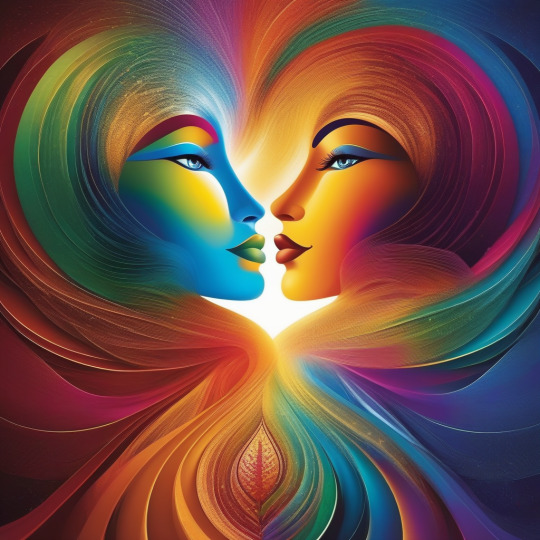
View On WordPress
#Acceptance#Consciousness#Dualities#meditation#Non-Judgment#Philosophical Insight#Relative Self#Self-Awareness#Soul Awakening#Spiritual Journey#Ultimate Self#Unconditional Love
2 notes
·
View notes
Text
On Homestuck's Character Deaths, Theatre, and the Ultimate Self
I'm listening to the Homestuck Made This World podcast and getting some really cool comparisons between Homestuck and the plays of Shakespeare's time, specifically on how they deal with onstage character death (they play with your expectations and your level of story immersion).
Apparently, in the original King Lear story, Cordelia doesn't die. Shakespeare writes her death into the end of the King Lear play, then has King Lear point at Cordelia's body and insist she isn't dead--which is true, in a way, because the actor isn't dead. (Can't not break that 4th wall when it's there for the breaking.)
Another point of interest comes up in John Webster's tragedy (I think it may be the Duchess of Malfi, but I haven't read it so I can't be sure). In the play, a character gives two men some orders and pistols. The two men betray the character who gave them the guns and shoot him--you watch him fall and think, 'he's dead'--but then the shot character rises back to his feet to tell them, "I was already aware of your betrayal, so I gave you theatre pistols" (paraphrasing here).
That makes me think of how Hussie's Author Character (not to be confused with the actual AUTHOR, capitalized for emphasis) dies in Homestuck. It makes me think about how Gamzee cannot die from Caliborn's gunfire. It makes me think about character deaths that don't stick, and about the subversion of audience expectations in how the story will progress.
It also got me thinking about how the Ultimate Self of a character is immortal through collective character narratives; because it doesn't matter if the individual iterations of the "Actor" dies in different variations of "The Play," the collective character still exists under the same name/actor. No matter how many Dirks die, "Dirk" as an existing character isn't truly dead. Whether existing outside the canon as a character with ongoing fanworks created about him, or existing within the canon's many invisible offshoot timelines and splintered/dead iterations, "Dirk" will be permanently preserved. Of course, the matter of how those disparate chunks come together--and which iteration ends up driving the Ultimate Definition of the Character--is a different story.
I think there's a comparison to be made with how actors will favor certain personality traits over others in their embodied interpretation of their assigned role. Having a different actor for the same character is going to result in two different iterations of the character. But even in day-to-day performances of the same character by the same actor, there are bound to be differences, maybe improvisations. So which iteration holds the Greatest Truth? Is a character the collective whole of all performances? Or is there one performance that went absolutely perfectly?
(This is not to be confused with the Conditional Immortality that comes with Godhood, which indicates that the character's importance is so great that they will not be able to exit canon unless it is with a narratively satisfying death.)
(It makes me sort of curious what John's canon exit would've been like without the Retcon, but maybe the point is that we never get to find that out?
Maybe paradox space rules (i.e. the AUTHOR's Intentions for the story) indicate this was always how Homestuck was supposed to end, and there was no other possible ending.
Or maybe Retcon trumps even paradox physics, and this is John (who is the 2nd person narrator the readers started with) achieving victory over the grueling narrative machine, complete with the AUTHOR's surrender to finally end the story by accepting that it will be fixed in stone in imperfection. (Because sometimes trying to finish a story in a satisfying way for the AUTHOR is a very different thing from what the readers would be satisfied with, or what external time limits force the ending to be. Maybe sometimes a serial creator has to accept that 'this is the ending I can manage at this time, and I don't think I can ask more of myself'.)
idk man I'm getting so many spinny thoughts abt homestuck it is incurable)
#homestuck#homestuck meta#dirk strider#john egbert#my thoughts#shakespeare#gamzee makara#caliborn#john webster#king lear#homestuck made this world#andrew hussie#ultimate self
55 notes
·
View notes
Text
I think something that would have been cool for the Ultimate Selfs in Homestuck 2 is that they used another brush when drawing them
Like the contrast could have been great considering they are every alternate versión of themselfs and some of them have control over the narrative so it could set them appart of the other characters
But tbh they we're probably not going for something like that lol oh well, they already have good designs so
13 notes
·
View notes
Text

Did a Ultimate Bard of Mind concept for a friend in my Homestuck server, thank you for commissioning me!
#artists on tumblr#digital art#ultimate self#bard of mind#homestuck#ultimate bard of mind#god tier#ult god tier#eyes#commission
37 notes
·
View notes
Text
Not an Enigma, and Certainly Not a Curse: the "Ultimate Self" in Hussie's Own Words
I've found myself, lately, in several conversations in a row where the other guy and myself weren't on the same page about what the Ultimate Self meant; and though I welcome the opportunity for discussion, explaining my position over and over again has cost me minutes of my screen life that I simply won't win back. So this post is a departure from my usual fare in that it's more for my own benefit than that of anybody else.
I've been over Davepeta's "superceding bodyless and timeless persona that crosses the boundaries of paradox space" enough already, so if you're interested in the Ultimate Self as it is in Homestuck, I recommend you read "Homestuck's Gnosticism: The Conflict", and then, if that piques your attention, you continue with the follow-up "The World/The Wheel". For the purposes of this post, though, I want to keep analysis, interpretation and hypothesising to a minimum. As the title indicates, this is the Ultimate Self not as I describe it, or as characters describe it, but - so to speak - straight from the horse's mouth.
In Andrew Hussie's commentary on Homestuck: Book 6, p. 312:
Oftentimes, when characters lose certain qualities that came to define them, there's this sense of liberation they seem to experience. They become a happier, more relieved, easier-going version of themselves. When Aradia ditches a defining quality we came to know her by (being dead), she becomes a much happier and self-actualized Aradia. Sollux also seems to be chilling out now that his defining properties (bifurcation, etc.) have been KO'd. He had a mouth full of gnarly teeth that gave him a wicked lisp (gone), eyes full of nasty laser beams (gone, along with his eyesight), and a brain full of doomsday visions and bipolar disorder (also gone—well, maybe not the bipolar thing, because that's probably not how that works, but whatever). You get more of this kind of thing in even higher degrees with some of the fusion stuff that happens later (Arquius, Davepeta), where characters become almost euphoric versions of themselves for having been completely liberated from certain self-limitations which previously defined them. The concept of an "ultimate self," which appears much later, probably has its roots way back to stuff like this, which got the ball rolling on the idea that a more complete or fulfilled self is one that becomes free from mortal limitations, or the idiosyncrasies which comprise a specific instance of one version of yourself. Hence an ultimate self is an aggregate of someone's full potential. It's not just doing away with negative traits, but summing up all iterations of yourself, including ones without those traits, allowing you to move beyond them. Or maybe more accurately, to view them as insignificant in the grand totality of what a person really is.
Importantly, what Hussie does here is draw the conceptual line from the themes of Acts 1-5 to what are often interpreted by some as radically different, even left-field themes through Act 6. Think of this as an extension of one of Homestuck's meta-themes, where the comic undergoes a series of escalations that take simple conflicts to their logical extremes: we start the story worried about a Reckoning which might destroy the Earth, then end up with the more pressing concern that a Rapture is about to end reality as we know it. The Ultimate Self is the end result of the exact same kind of escalation; where the God Tiers are a method of becoming a better version of oneself by merging with one's "ideal" dream body, the Ultimate Self is the logical conclusion that one can become the best version by unifying with every body.
To draw my own conceptual line back to Homestuck: Book 5, page 409:
This connects to the basic question of whether to embrace the regimentation of a heroic path conveniently laid out for you (the expectation), or to reject it as the shallow and rigid confinement of personal destiny (the deviation). These issues are expressed through the fundamental language of platonic idealism: perfect ideas of things, and then specific, imperfect instances of those ideas, or varied permutations, evolutions, or hacks of those ideas through alchemy. The way Sburb "should" go is an ideal (expectation), but the disastrous, chaotic way it actually goes is an imperfect instance (deviation). An "idea" of a person, such as Rose, along with her regimented heroic quest for growth, and all the great things she might imagine herself to become if she followed it, is an ideal (expectation). The messy, flawed, yet more genuinely human individual she does become resulting from her errant choices and rejection of formalism, is an imperfect instance of an ideal (deviation). What's the bottom line here? This is a lot. I know it's a lot. Homestuck is, in fact, a lot.
I've added some of my own emphasis there again, but that whole extract is worth reading. The reason I bolded that part is because this "Platonic idealism" is something Hussie talks about a lot in his commentary, and I think that commentary is essential reading for anyone who wants to even get their foot in the door on this topic. Again, this is something I've blogged about extensively already, so there's more than just Hussie's word to take for it if you're really interested; but for the sake of this post, I'll finish off with, again, what Hussie himself has to say on the matter, all the way back in Homestuck: Book 1, page 123:
With things like Athenums and Perfectly Generic Objects locked and loaded, Sburb architecture seems to be circling widely around a game abstraction-based systemization of Platonic idealism. Homestuck deals with what I am going to roughly characterize as THEMES.
51 notes
·
View notes
Text
If, as per the old theories, Trickster Mode is being hopped up on Life and Grimdark is being hopped up on Void, what would the equivalents be for the other Aspects and the ways of attaining them? Would the Hopesplosion be Hope?
Maybe the Ultimate Self is the Heart or Mind?
#homestuck#homestuck theory#trickster mode#tricksters#grimdark#hope aspect#void aspect#life aspect#ultimate self#ultimate selves
7 notes
·
View notes
Text
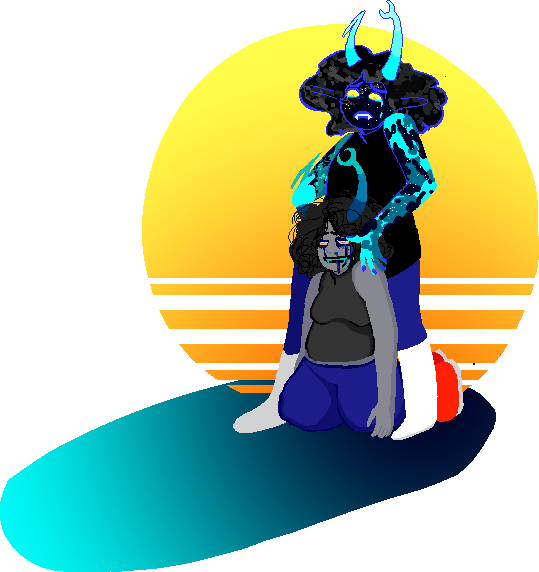
And I'm Begging You
Please Don't Die...
5 notes
·
View notes
Note
ya know... i kind of figured the concept of an "ult"self was coming when all the doomed daves held narrative relevance. relative omniscience kind of seemed like a logical continuation of that. kinda pissed that it auto-doomed dirk to villainy though. considering his entire arc in HS is about escaping the predestination of his 'bad' splinters. just seems like such a walk-back of his core themes and i don't trust the writers of the post-canon stuff to give him an ending that returns to form. like ok i guess the one character who was truly fighting to be a better person is just doomed in every timeline no matter what, even the one where everyone gets a good end, because its a necessary plot contrivance.
meanwhile, vriska. :/.
Dave's talk with Dirk did kind of cement that Dirk is doomed to be a shitty person no matter who he is, even if the one Dave is talking to is not the same person. After all, how else is Bro going to apologize to Dave for being abusive? Have someone else from a different timeline that lived much differently from Dave, say sorry for everything that he has done towards Dave.
Ultimate Self could have been that Doomed Daves accepting fate and wanting to help the one individual continue their timeline and get to their goal. It probably would have been this for Aradia too, since she had worked with Aradiabots to ensure her session makes it through. Even with stopping Jack from getting to her friends. But I guess they don't count.
And of course, more favoritism to Vriska.
#Homestuck#Ultimate Self#HOM3STUCK#Homestuck Epilogues#HS2#Homestuck 2#HS^2#Homestuck2#Dave Strider#Dirk Strider#Vriska Serket
9 notes
·
View notes
Text
Ultimate Selves and the Characters' (Mis)Understanding of Them
I'm gong to try to type out what I think my thoughts are on ultimate selves, or at least until I get tired of typing, because I usually end up just ranting in the tags of random posts about it, and because considering how little Davepeta actually gets to say, you know I'm going to have thoughts on it:
In a constant battle between "writer stand-in for explaining concepts" and "characters portraying their own understanding of information as truth", we start with the way Davepeta describes "Ultimate Selves" as explicitly in reference to a metaphysical sense of self, which is backed up by Andrew Hussie's commentary
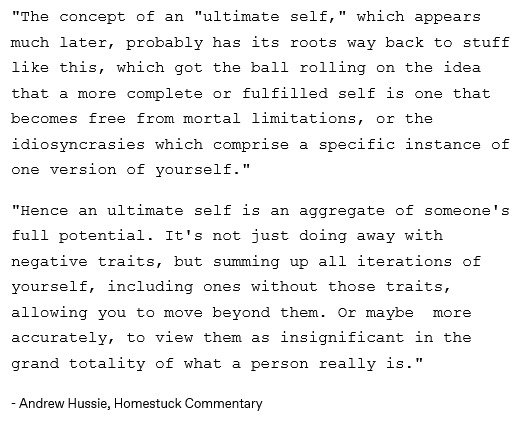

If you flipped a coin to make two separate decisions, yeah there's the splitting of timelines but at the center there's the character of [you] and each split merely represents ''how [you] would do one thing'' and ''how [you] would do the other''.
We see a major glimpse of this through Terezi's being a Seer of Mind, when she tries to read every possible situation from her understanding of the situation, to decide how to deal with Vriska, until ultimately leaving it down to a toss.
We see a minor glimpse of this through the tale of the Signless, and his ability as a Seer of Blood, when he gets visions of Kankri's version of Beforus, and we learn more about the Dancestors, and how drastically different or similar they are to the Ancestors
Notably, this is discussed in reference to characters in a narrative being viewed by an "omniscient reader". Whether one of these decisions are "good" or "bad", a character's ability to make these decisions and how they act upon them feeds into a better understanding of that character.
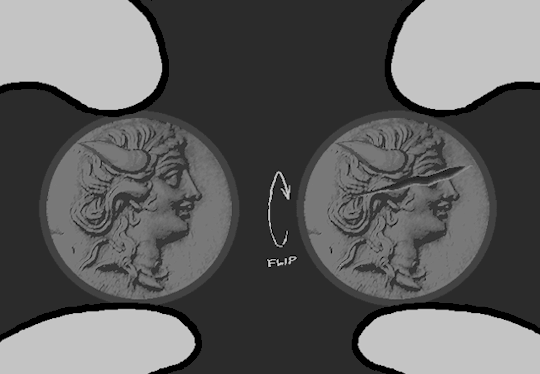
We as readers see what happened to Jades across timelines and build an understanding of her as someone with a deep sense of loneliness and a strong capability of caring for her friends. We see Vriska and (Vriska) and understand the character's potential for stagnation or growth. We see Dave and Davesprite as reflections of a character strangled by their presumed fate or stripped away from it.
"Realizing your ultimate self" then, is less "becoming hyper aware of everything every version of you does" or "becoming the sole version of you that is hyper consistent in all your decisions and interpretations", and more being able to find understanding of the self through or in spite of that larger self.
Rose, another Seer, is the one who probably bests exemplifies the different concurrent understandings of the ultimate self: throughout both of the epilogues, she sees visions of her selves thanks to her aspect of Light, which strains her as her body can't handle the information. In meat, thanks to Dirk, she's lead towards the idea that she needs to embrace these visions, and that this is what's best
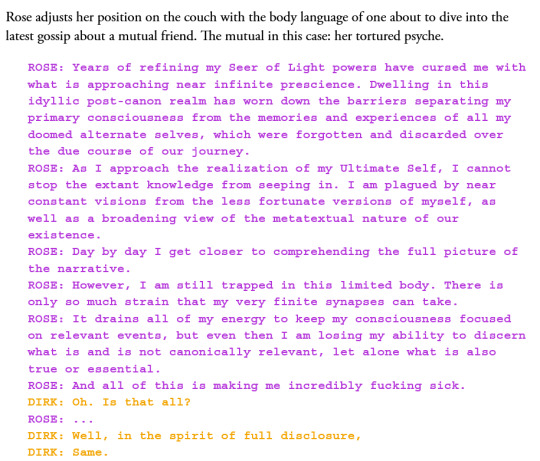
However in candy, she has been supposedly "cut off" from her ultimate self, but brings her bliss, because there's a sort of detachment gained when you don't have to worry about being the "best you that you can be".
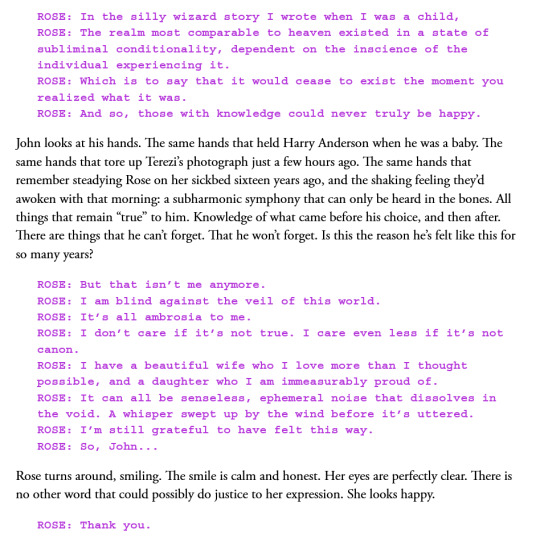
and I got tired of typing, so if you feel blueballed, I don't know, look through my ultimate selves tag for other takes, maybe I'll edit this post later
#dashingposts#long post#ultimate selves#ultimate self#homestuck epilogues#it's late and I'm hungry so *throws this at the wall and sees what sticks*#homestuck#davepetasprite#dashingthoughts
4 notes
·
View notes